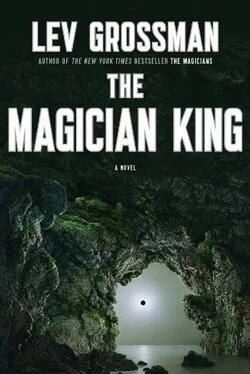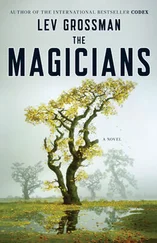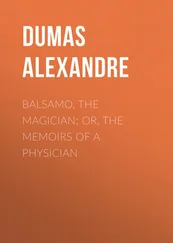The loneliness of the scene was beyond anything. After an hour the ship was virtually invisible behind them, and the only sound was the steady soft slosh-slosh of their footsteps. Sometimes the mouthless fish came and bumped harmlessly against their ankles. The thin water was easier to walk through than regular seawater would have been; it put up less resistance. Julia walked along on the surface as befitted a demi-goddess. No one spoke, not even Abigail, who was almost never at a loss for words. The ocean was smooth as glass to the horizon.
The sun was hot on the tops of their heads. After a while Quentin gave up staring at the horizon and looked only down, at his familiar black boots taking step after step after step. Each step took them closer to the end of the story. They were going to finish this. Something could still go wrong now, probably, but he had no idea what. He could gauge their progress by the gradual shallowing of the water, from his calf down to his ankle and finally to a thin film of water that splatted underfoot. The sun was low in the sky behind them. Far off to their right a single evening star had appeared, with its twin shimmering below it in the water.
“Let’s hurry,” Julia said. “I can feel the magic going.”
By that time the wall in front of them was very clear. It might have been ten feet high and was made from old, thin bricks — it looked like the same bricks they’d used to build the wall in hell. They must have used the same contractor. It stood at the back of a thin gray sandy beach that stretched off to the vanishing point in both directions. A huge old wooden door was set in it, bleached and worn by time and weather. As they came closer they could see that the door had seven keyholes of different sizes.
On either side of the door were two plain wooden chairs, the kind of old chairs that might have gotten exiled to the porch because they were too shabby for the dining room, but were still too good and sturdy to throw away. They didn’t match; one of them had a wicker seat. In the chairs sat a man and a woman. The man was tall and thin, fiftyish, with a stern, narrow face. He wore a black dinner suit, complete with tails. He looked a little like Lincoln on his way to the theater.
The woman was younger by a decade or so, pale and lovely. As they stepped onto dry land she raised a hand to greet them. It was Elaine, the Customs Agent from the Outer Island. She looked a lot more serious than she had the last time he’d seen her. She had something in her lap: the Seeing Hare. She was petting it.
She stood up, and the hare jumped down and skittered off down the beach. Quentin watched it go. It made him think of little Eleanor and her winged bunnies. He wondered where she was, and who was taking care of her. Before this was over he would ask.
“Good evening,” Elaine said. “Your Majesty. Your Highnesses. Good evening, all of you. I am the Customs Agent. I tend to the borders of Fillory. Borders of all kinds,” she added pointedly, to Quentin. “I believe you met my father? I hope he didn’t inconvenience you too greatly.”
Her father? Ah. More fairy tale. He supposed that fit together neatly.
“Bother, it’s almost time,” the man said. “The gods are finishing their work. Magic is almost gone, and without it Fillory will fold up like a box with us in it. Do you have the keys?”
Quentin looked to Eliot.
“You do it,” the High King said. “It was your adventure first.”
Eliot held out the ring with the seven keys, and Quentin took it and walked over to the big wooden door. He kept his back straight and his gut sucked in. This was the moment, he thought. This was the triumph. People would tell this story forever. Though they might leave out how melancholy the twilit beach seemed, like all beaches in the early evening, when the fun is over. Time to slap the sand off your feet and pile into the station wagon and go home.
“Smallest to largest,” said the man in the tuxedo, sternly but not unkindly. “Go ahead. Leave them in the locks as you go.”
Quentin slipped each one off the key ring in turn. The first, tiniest lock turned easily — you could feel a mechanism of fine, well-oiled gears meshing and interlocking and turning inside the door. But each successive key put up more resistance. The fourth one was set so high up that he had to stand on his tiptoes to turn it. He could barely budge the sixth, and when he finally got it going, his fingers bending back and his knuckles white with the effort, light flashed inside the keyhole, and it spat out sparks that stung his wrist.
The last one wouldn’t turn at all, and in the end Quentin had to ask Bingle for his sword, which he stuck through the metal ring at the end of the key and used as a lever. Even then the man in the formal suit had to get up from his chair and help him.
When it finally gave and began to move, it was like he’d fitted a key into a hole in the hub at the center of the universe. Together he and the man put their backs into it — Quentin’s face was crushed into his shoulder. His suit smelled faintly of mothballs. As the key turned, the stars turned overhead. The whole cosmos was rotating around them, or maybe it was Fillory that was turning, or maybe there was no difference. The night sky spun above them until the day sky replaced it overhead. They kept turning, and the day sky sank below the horizon again, and the stars rushed back out.
Full circle. They were back where they started. There was a deep click that seemed to echo forever, the sound bouncing off the outer walls of the world, a bank vault opening in a cathedral. The door swung slowly inward. Behind it, through the doorway, was empty space, black sky, stars. Quentin took an involuntary step back. Everybody on the beach, even Bingle, even the sloth, let out a breath they didn’t know they’d been holding.
“Well,” Elaine said shakily. She was flushed, and she even laughed a little. “I have to admit, I wasn’t sure that would work.”
“Did it work?” Quentin said. He looked around for a sign that things were different. “I can’t tell.”
“It worked.”
“It worked,” Julia said.
Somebody caught Quentin from behind in a huge bear hug. It was Josh. They fell down on the chilly sand together, Josh on top.
“Dude!” Josh yelled. “Look at you! We just saved magic!”
“I guess we did.” Quentin started laughing, and then he couldn’t stop. It was all over. Magic wasn’t going to leave them after all. They had their own magic now, and it was safe. Not just in Fillory but everywhere. Nobody could take it away from them. Probably a little more dignity befitted the Saviors of All Magic, but fuck it. Poppy whooped and piled onto them too.
“You losers,” Eliot said, but he was grinning his crazed, jagged grin. “We should have brought champagne.”
Quentin lay back on the sand and looked up at the darkening sky. He could have fallen asleep right then and there on the sand, and slept all the way back to Whitespire. He closed his eyes. He heard Elaine’s voice.
“If you like,” she said, “you can go through it.”
Quentin opened his eyes again. He sat up.
“Wait,” he said. “Really? Through the door? What’s back there?”
“The Far Side of the World,” the Customs Agent said simply.
“The Far Side,” Eliot said. “We don’t know what that means.”
“I should explain,” she said. She settled herself back on her chair. “Fillory is not a sphere, like the world where you were born. Fillory is flat.”
“So not a Klein bottle?” Josh said.
“I have so many questions,” Poppy said. “Like how does gravity work?”
“As such,” Elaine went on, ignoring them, “Fillory has another side. A verso, if you will.”
Читать дальше












